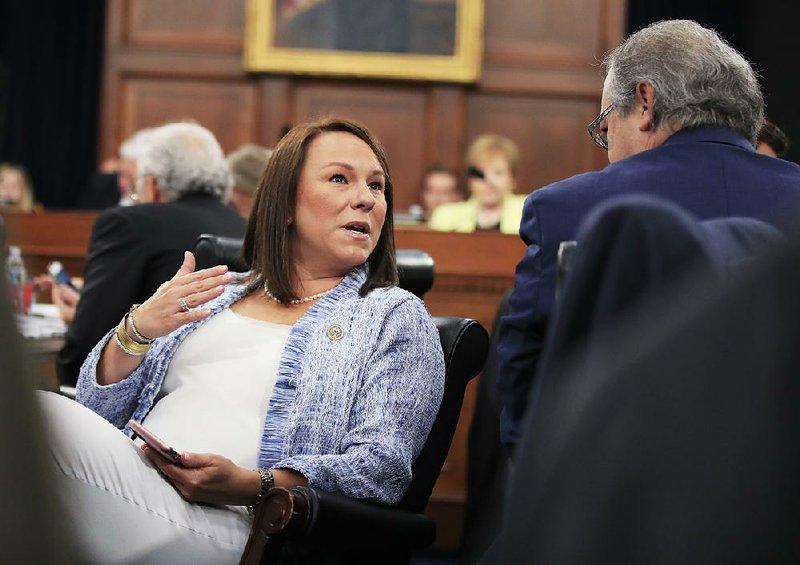WASHINGTON -- A key House panel on Wednesday divided along party lines as it slogged through a daylong debate over a Republican budget that would slash safety-net programs while rewarding the military with a $70 billion boost.
The Budget Committee plan would pave the way for Republicans to overhaul the tax code, a top priority of President Donald Trump. Passing a budget through Congress is the only way to get a GOP-only tax plan enacted this year.
But the budget outline faces opposition from both wings of the party. Republican conservatives want more of its proposed cuts to actually take effect, while moderates want to focus on a tax overhaul rather than cuts to benefit programs such as food stamps.
The nonbinding GOP plan promises to cut more than $5 trillion from the budget over the coming decade, though Republicans only appear serious about enacting a relatively modest $203 billion deficit cut over the same period through filibuster-proof, follow-up legislation.
Republicans argue that growing deficits and debt are part of the reason for slow economic growth and that big benefit plans like Medicare and Medicaid need changes now to keep them from going broke for future generations.
"Both parties in Washington have failed to abide by a simple principle that all American families and small businesses do -- that we must live within our means," said Budget Committee Chairman Diane Black, R-Tenn. "Balancing the budget requires us to make tough choices, but the consequences of inaction far outweigh any political risks we may face."
But Democrats blasted the sweeping cuts in the plan. It reprises a provocative proposal -- opposed by Trump -- to turn Medicare into a voucherlike program for future retirees. Experts say that change would likely increase costs for beneficiaries and deny them the coverage guarantees of Medicare.
"The list of upside-down priorities and irresponsible policies in this document is lengthy," said top panel Democrat John Yarmuth of Kentucky. "Democrats support investments in education, health care, national security, job training, innovation and infrastructure. We support programs that help individuals with nowhere left to turn, and a tax code that helps families get ahead."
The plan at last appeared set to ease through the GOP-controlled panel, which is stocked with hard-core conservatives, some of whom said the measure is too loose on spending. Rep. Glenn Grothman, R-Wis., faulted the measure for a $28 billion increase above Trump's budget for defense and for rejecting most of Trump's proposed $54 billion cut to domestic programs for next year.
The measure faces an uncertain future, since it's caught between moderates unhappy that it would link a 10-year, $203 billion package of spending cuts to the upcoming tax overhaul effort. On the other side are conservatives pressing for a larger package of spending cuts to accompany this fall's tax bill.
While exempting Social Security, veterans and defense from cuts, the plan proposes trims across the rest of the budget to turn this year's projected $700 billion-or-so deficit into a $9 billion surplus by 2027. It would do so by slashing $5.4 trillion over the coming decade, including almost $500 billion from Medicare and $1.5 trillion from Medicaid and the President Barack Obama-era health law. The plan calls for a 10-year, $150 billion cut to food stamps, though the Agriculture Committee would be directed to come up with no more than $10 billion.
It also cuts far more sharply than prior GOP plans from nonhealth benefit programs such as federal employee pensions, food stamps and tax credits for the working poor.
It also contains its share of gimmicks, including $1.8 trillion in deficit cuts over the coming decade from rosy projections of economic growth averaging 2.6 percent over 10 years. Another $700 billion in savings would come from a crackdown on "improper payments" such as tax credits and Social Security and Medicare benefits going to people to don't qualify for them. Many of its cuts are unspecified.
But in the immediate future the GOP measure is a budget buster. It would add almost $30 billion to Trump's $668 billion request for national defense.
A Section on 07/20/2017
